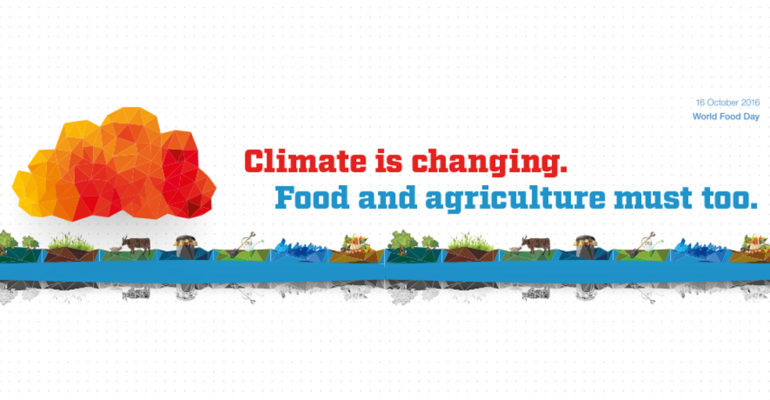UN Representative to Rome, Liliana Mosca, attended the 43rd session of the Committee on World Food Security (CFS), which took place in Rome from 17-21 October, one day after World Food Day, 16 October. The objective of the CFS is ‘to improve the food security and nutrition of populations affected by, or at risk of, protracted crises by addressing critical manifestations and building resilience; adapting to specific challenges; and contributing to addressing underlying causes’. By working together in a coordinated way, the UN, NGOs and civil society aim to ensure food security and nutrition for all.
The meeting opened with a short video from UN Secretary General, Ban Ki Moon, who reminded the Committee of the key role in which they play in implementing the 2030 Agenda, and the decisions made at this session can directly support Sustainable Development Goal (SDG) 2 (Zero Hunger).
The speakers over the five-day conference included, Chairperson of CFS, H.E. Ms Amira Gornass, Director General of FAO, Ambassador Gornass, Jose Graziano Da Silva, heads of World Food Program (WFP) and International Fund for Agricultural Development (IFAD). All orators connected the major themes of food security, nutrition and climate change which made for a very cohesive and comprehensive conference. Throughout the five-day conferences, many discussions led to the SDGs, including an Open Ended Working Group (OEWG) which has been working since CFS 42 last year to see how CFS can support the advancement of the 2030 Agenda.
Some shocking statistics were noted during the conference, currently nearly 800 million people are hungry, 160 million children under five are stunted, 1 billion people overweight including 600 million obese and 2 billion suffering from one or more nutrient deficiencies in their diet. Furthermore, while some improvements have been made about reducing poverty, there is a lot more that needs to be done; in 1990, 40% of the world’s population living in extreme poverty, lived on less than $1.90/day, however in 2015 that the percentage of extremely poor had dropped to 12.9%. Unfortunately, women are chronically disproportionately affected when it comes to poverty. The SDGs are an opportunity to increase political will and determination to implement a truly ambitious post-2015 agenda that address the fundamental inequalities between peoples.
A new Forum was created, ‘Forum on Urbanization, Rural Transformation and Implications for Food Security and Nutrition’, this is a result of the rapid urbanisation and the transformation of agriculture, food systems and rural spaces, which are all interlinked. The outcomes of this Forum will be revised and developed by an OPWG and its results presented for endorsement at CFS 44 in 2017.
The sessions concluded with a brief presentation of progress of the CFS carried out by an independent evaluator and arrangements for the next CSF, in October 2017.


Comments are closed.